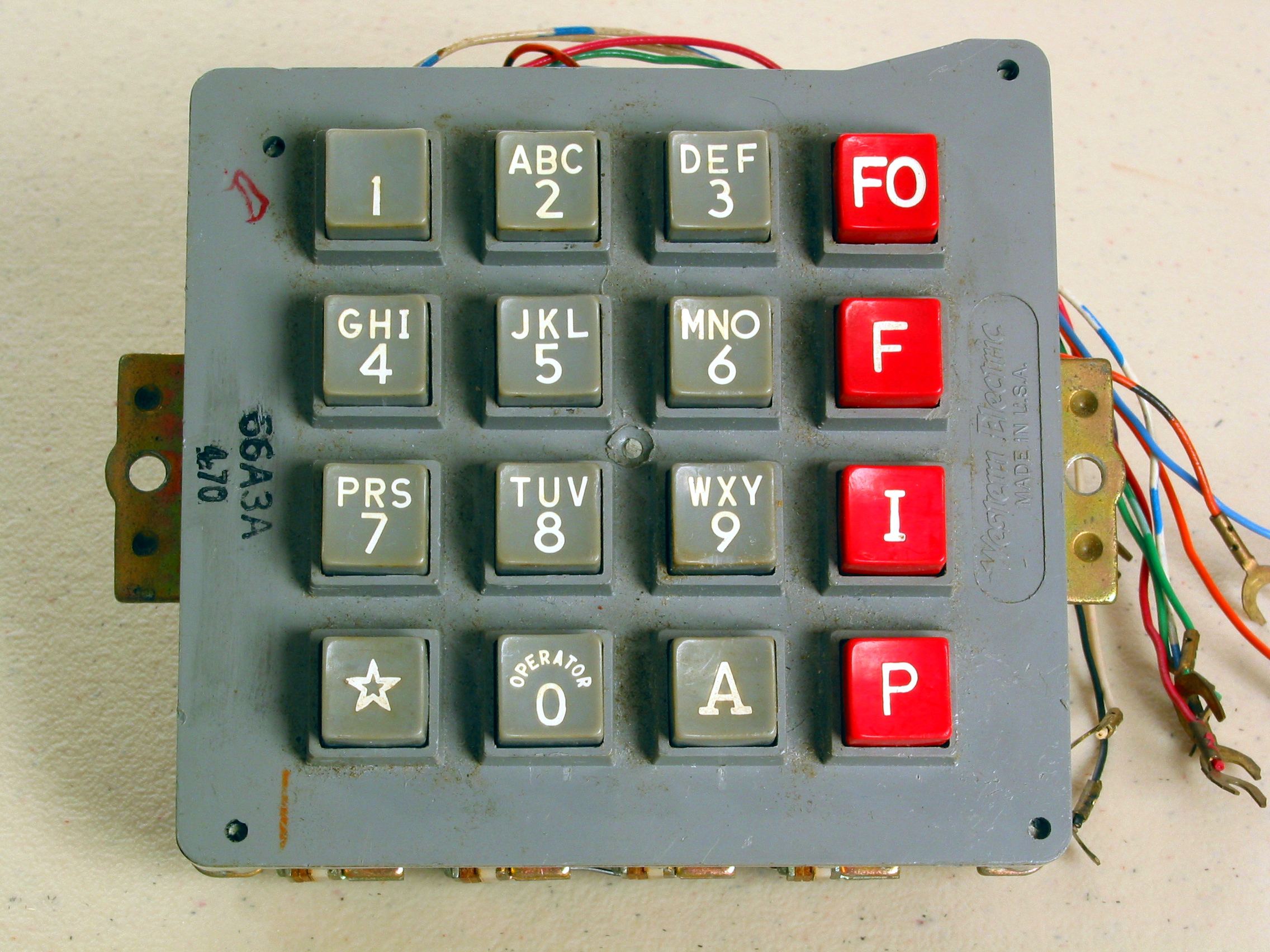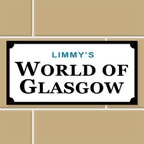|
Fantasy Interactive Scenarios By Telephone
''Fantasy Interactive Scenarios by Telephone'' (''F.I.S.T.'') were a series of single-player telephone-based roleplaying games launched by UK games designer Steve Jackson in 1988 through the company Computerdial, who until then had used their service to provide astrology services. The product was a radio drama version of Jackson's popular ''Fighting Fantasy'' novels, and the outcome of the story could be affected by choices the user made, using a touch-tone telephone. A free starter pack could be ordered by sending a self-addressed stamped envelope to the game creators. Two scenarios were produced for the ''F.I.S.T.'' game. The first of these was released under the title ''F.I.S.T. 1 – Castle Mammon: Lair of the Demon Prince'' in September 1988, and the second was a direct sequel titled ''F.I.S.T. 2 – The Rings of Allion'' in March 1989. Players could register over the phone and create a character, which would be saved and restored the next time the player called. Both g ... [...More Info...] [...Related Items...] OR: [Wikipedia] [Google] [Baidu] |
Steve Jackson (UK)
Steve Jackson (born 20 May 1951) is a British game designer, writer, game reviewer and co-founder of UK game publisher Games Workshop. History Steve Jackson began his career in games in 1974 as a freelance journalist with ''Games & Puzzles'' magazine. In early 1975, Jackson co-founded the company Games Workshop with school friends John Peake and Ian Livingstone. They started publishing a monthly newsletter, ''Owl and Weasel'', which was largely written by Jackson, and sent copies of the first issue to subscribers of ''Albion'' fanzine; Brian Blume, co-partner of American publisher TSR, received one of these copies and in return sent back a copy of TSR's new game ''Dungeons & Dragons''. Jackson and Livingstone felt that this game was more imaginative than anything being produced in the UK at the time, and so worked out an arrangement with Blume for an exclusive deal to sell ''D&D'' in Europe. In late 1975, Jackson and Livingstone organized their first convention, the first Gam ... [...More Info...] [...Related Items...] OR: [Wikipedia] [Google] [Baidu] |
Fantasy
Fantasy is a genre of speculative fiction involving magical elements, typically set in a fictional universe and sometimes inspired by mythology and folklore. Its roots are in oral traditions, which then became fantasy literature and drama. From the twentieth century, it has expanded further into various media, including film, television, graphic novels, manga, animations and video games. Fantasy is distinguished from the genres of science fiction and horror by the respective absence of scientific or macabre themes, although these genres overlap. In popular culture, the fantasy genre predominantly features settings that emulate Earth, but with a sense of otherness. In its broadest sense, however, fantasy consists of works by many writers, artists, filmmakers, and musicians from ancient myths and legends to many recent and popular works. Traits Most fantasy uses magic or other supernatural elements as a main plot element, theme, or setting. Magic, magic practit ... [...More Info...] [...Related Items...] OR: [Wikipedia] [Google] [Baidu] |
Play By Telephone
Play most commonly refers to: * Play (activity), an activity done for enjoyment * Play (theatre), a work of drama Play may refer also to: Computers and technology * Google Play, a digital content service * Play Framework, a Java framework * Play Mobile, a Polish internet provider * Xperia Play, an Android phone * Rakuten.co.uk (formerly Play.com), an online retailer * Backlash (engineering), or ''play'', non-reversible part of movement * Petroleum play, oil fields with same geological circumstances * Play symbol, in media control devices Film * ''Play'' (2005 film), Chilean film directed by Alicia Scherson * ''Play'', a 2009 short film directed by David Kaplan * ''Play'' (2011 film), a Swedish film directed by Ruben Östlund * ''Rush'' (2012 film), an Indian film earlier titled ''Play'' and also known as ''Raftaar 24 x 7'' * ''The Play'' (film), a 2013 Bengali film Literature and publications * ''Play'' (play), written by Samuel Beckett * ''Play'' (''The New York Tim ... [...More Info...] [...Related Items...] OR: [Wikipedia] [Google] [Baidu] |
Roleplaying Games
A role-playing game (sometimes spelled roleplaying game, RPG) is a game in which players assume the roles of characters in a fictional setting. Players take responsibility for acting out these roles within a narrative, either through literal acting or through a process of structured decision-making regarding character development. Actions taken within many games succeed or fail according to a formal system of rules and guidelines. There are several forms of role-playing games. The original form, sometimes called the tabletop role-playing game (TRPG), is conducted through discussion, whereas in live action role-playing (LARP), players physically perform their characters' actions.(Tychsen et al. 2006:255) "LARPs can be viewed as forming a distinct category of RPG because of two unique features: (a) The players physically embody their characters, and (b) the game takes place in a physical frame. Embodiment means that the physical actions of the player are regarded as those of th ... [...More Info...] [...Related Items...] OR: [Wikipedia] [Google] [Baidu] |
Steve Jackson (UK Game Designer)
Steve Jackson (born 20 May 1951) is a British game designer, writer, game reviewer and co-founder of UK game publisher Games Workshop. History Steve Jackson began his career in games in 1974 as a freelance journalist with ''Games & Puzzles'' magazine. In early 1975, Jackson co-founded the company Games Workshop with school friends John Peake and Ian Livingstone. They started publishing a monthly newsletter, ''Owl and Weasel'', which was largely written by Jackson, and sent copies of the first issue to subscribers of ''Albion'' fanzine; Brian Blume, co-partner of American publisher TSR, received one of these copies and in return sent back a copy of TSR's new game ''Dungeons & Dragons''. Jackson and Livingstone felt that this game was more imaginative than anything being produced in the UK at the time, and so worked out an arrangement with Blume for an exclusive deal to sell ''D&D'' in Europe. In late 1975, Jackson and Livingstone organized their first convention, the first Gam ... [...More Info...] [...Related Items...] OR: [Wikipedia] [Google] [Baidu] |
Radio Drama
Radio drama (or audio drama, audio play, radio play, radio theatre, or audio theatre) is a dramatized, purely acoustic performance. With no visual component, radio drama depends on dialogue, music and sound effects to help the listener imagine the characters and story: "It is auditory in the physical dimension but equally powerful as a visual force in the psychological dimension." Radio drama includes plays specifically written for radio, docudrama, dramatized works of fiction, as well as Play (theatre), plays originally written for the theatre, including musical theatre, and opera. Radio drama achieved widespread popularity within a decade of its initial development in the 1920s. By the 1940s, it was a leading international popular entertainment. With the advent of television in the 1950s radio drama began losing its audience. However, it remains popular in much of the world. Recordings of OTR (old-time radio) survive today in the audio archives of collectors, libraries and mus ... [...More Info...] [...Related Items...] OR: [Wikipedia] [Google] [Baidu] |
Fighting Fantasy
''Fighting Fantasy'' is a series of single-player role-playing gamebooks created by Steve Jackson and Ian Livingstone. The first volume in the series was published in paperback by Puffin in 1982. The series distinguished itself by mixing Choose Your Own Adventure-style storytelling with a dice-based role-playing element included within the books themselves. The caption on many of the covers claimed each title was an adventure "in which YOU are the hero!" The majority of the titles followed a fantasy theme, although science fiction, post-apocalyptic, superhero, and modern horror gamebooks were also published. The popularity of the series led to the creation of merchandise such as action figures, board games, role-playing game systems, magazines, novels, and video games. Puffin ended the series in 1995, but the rights to the series were eventually purchased by Wizard Books in 2002. Wizard published new editions of the original books and also commissioned six new books over two s ... [...More Info...] [...Related Items...] OR: [Wikipedia] [Google] [Baidu] |
Dual-tone Multi-frequency Signaling
Dual-tone multi-frequency signaling (DTMF) is a telecommunication signaling system using the voice-frequency band over telephone lines between telephone equipment and other communications devices and switching centers. DTMF was first developed in the Bell System in the United States, and became known under the trademark Touch-Tone for use in push-button telephones supplied to telephone customers, starting in 1963. DTMF is standardized as ITU-T Recommendation Q.23. It is also known in the UK as ''MF4''. The Touch-Tone system using a telephone keypad gradually replaced the use of rotary dial and has become the industry standard for landline and mobile service. Other multi-frequency systems are used for internal signaling within the telephone network. Multifrequency signaling Before the development of DTMF, telephone numbers were dialed by users with a loop-disconnect (LD) signaling, more commonly known as pulse dialing (dial pulse, DP) in the United States. It functions by i ... [...More Info...] [...Related Items...] OR: [Wikipedia] [Google] [Baidu] |
Dungeon Crawl
A dungeon crawl is a type of scenario in fantasy role-playing games in which heroes navigate a labyrinth environment (a " dungeon"), battling various monsters, avoiding traps, solving puzzles, and looting any treasure they may find. Video games and board games which predominantly feature dungeon crawl elements are considered to be a genre. Board games Dungeon crawling in board games dates to 1975 when Gary Gygax introduced '' Solo Dungeon Adventures''. That year also saw the release of '' Dungeon!''. Over the years, many games build on that concept. One of the most acclaimed board games of the late 2010s, '' Gloomhaven'', is a dungeon crawler. Video games The first computer-based dungeon crawl was ''pedit5'', developed in 1975 by Rusty Rutherford on the PLATO interactive education system based in Urbana, Illinois. Although this game was quickly deleted from the system, several more like it appeared, including '' dnd'' and ''Moria''. Computer games and series from the 1980s, ... [...More Info...] [...Related Items...] OR: [Wikipedia] [Google] [Baidu] |
Limmy's Show
''Limmy's Show!'' is a Scottish surreal comedy sketch show broadcast on BBC Two Scotland, written, directed and based on the 2006 podcast Limmy's World of Glasgow by Brian "Limmy" Limond, who stars as himself and a variety of characters in a series of observational, surreal, dark and bizarre sketches. Limmy frequently breaks the fourth wall by directly talking to viewers through the camera. The show stars Brian Limond, Paul McCole, Alan McHugh, Kirstin McLean and Ryan Fletcher. The first series featured a completely different supporting cast, consisting of Debbie Welsh, Tom Brogan and Raymond Mearns. The show has amassed a cult following since its release. Development ''Limmy's Show!'' was created as a result of the success of Limmy's live performances at The Fringe and the Glasgow International Comedy Festival based on his successful 2006 podcast ''Limmy's World of Glasgow''. Several of the characters seen in ''Limmy's Show'' were originally created through this podca ... [...More Info...] [...Related Items...] OR: [Wikipedia] [Google] [Baidu] |
_(14730388126).jpg)




